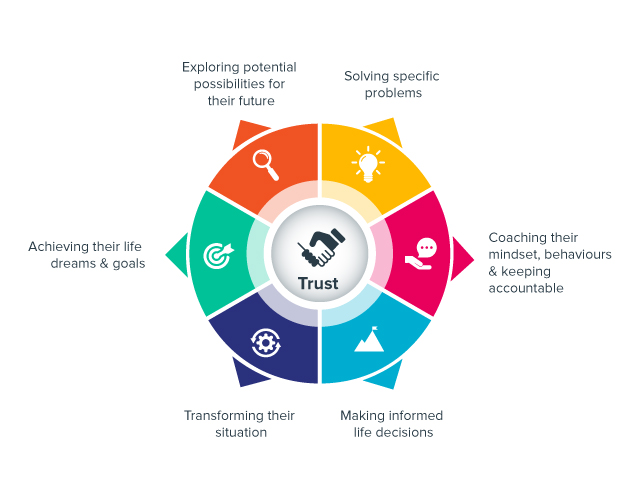In our modern history, during the 18th century within a little place called Britain the first industrial revolution was born - now commonly known as Industry 1.0. This revolution embarked on a process of change, an economic transition from handicraft to machine manufacturing, completely transforming the operation of businesses along with the role they played in society.
A gentleman by the name of Ned Ludd, supposedly a weaver from England, led a group of textile workers who were in opposition to the technological change emerging before their eyes. Fearing the loss of their jobs, the group took to smashing textile machinery with hammers in protest. The situation escalated, with the factory owners subsequently shooting rebellious folk on-site.
From this event emerged the Luddite movement, which formed the etymology of the term colloquially used today to describe those opposed to technological change.
Fast forward to 2023 - we now see ourselves in the midst of Industry 4.0 - the fourth industrial revolution. Technologies like AI, machine learning, and blockchain have surfaced, redefining industries and prompting societal change, paralleling the revolutions of the past.
As far as the financial services industry is concerned, financial advice processes have historically consisted of traditional or analogue means, exemplified by the likes of lengthy paper SoA documents, that still linger in typical advice practices today.
This aside, I am not insinuating that the financial advice industry is luddite by nature. On the contrary, advisers were early adopters of computers, email, and the internet.
This early adoption of technology prompts a significant line of thought.
How do advice businesses of today understand, leverage, and harness Industry 4.0? How do they interpret the digital advice landscape, what digital means for their business model, and even more importantly, what it means for their end clients who are desperately calling for smarter digital wealth solutions?
Being an early adopter of technology, and appropriately capitalising on opportunities brought forth by digital innovations are not one and the same.
There are two distinct underlying opportunities in an advice businesses’ embrace of technology. Firstly, in the capability to better engage clients and prospects through delivering a client experience and value proposition that better aligns with today’s tech-savvy consumer. Secondly, by shifting away from legacy technologies and the ineffective behaviours and processes that come with these, advisers are able to rid themselves of the contributing friction that immobilises efficiency and productivity within the advice process.
Let’s explore these two opportunities in more detail:
1. Developing Hybrid Human-Tech Skills
In leveraging the technological advancements that are helping advisers to engage tech-savvy clients and prospects better, there is an inevitable requirement to develop and expand knowledge around certain skills and techniques.
Elite advisers are developing their soft skills alongside their tech skills, in turn enabling them to meet the expectations of modern prospects or clients, in forging connections both emotionally and digitally. By establishing client connections in this way, advisers are able to understand the depths of a client’s life goals, values, and behaviours, all of which make up the intangible utility consumers place value on in any advice relationship.
The result of this? A more resonant emotional connection, and a robust client-adviser relationship.
In an industry traditionally focused on the hard-technical skills of postgraduate-based education standards, human psychology and technology get little attention. In this modern world of digital, in our ‘me-life-app’ society, these hybrid techniques are key to escalating our industry to greater heights.
Elite advisers have taken this hybrid world of digital advice in their stride, actively striving to improve outcomes around client success, in both the sense of tangible economics and financial outcomes, but also in the intangible utility, which clients value most.
Advisers are, in fact, starting to better leverage tech tools to support client advice conversations. For example, in harnessing tech, advisers gain the ability to model various scenarios in real-time and demonstrate future possibilities available to their clients. This capability assists advisers to articulate their value to clients in a way that has not been possible with legacy advice processes.

2. Embarking on Behavioural Change
For advice businesses looking to digitise, the behavioural change of wealth advisers is a critical factor. The change management of behaviour will ensure the successful adaptation of digital within any organisation.
The traditional way wealth advice services have been delivered, via paper, whiteboards and face-to-face meetings does not entirely align with the way today’s client wants to engage with wealth services. Today’s clients seek advice that incorporates a combination of human and digital tools, to help them harness and better understand their financial plan, whilst providing them with the means to track this plan over time through smartphone applications.
Elite advisers are honing in on the development of these hybrid skills, moving into a world where they can introduce digital tools to their client meetings and advice conversations. They are striving to produce client financial plans more seamlessly, whilst extending their service offering to operate on digital time. Digital technology is also helping elite advisers improve their proximity to mass affluent clients, while simultaneously boosting their relevance in the midst of the noise of information widely available to prospective clients seeking financial counsel.
If you’re thinking of exploring the digital advice landscape, considering what digital means for your advice business, or simply wanting to learn more about becoming a hybrid adviser, it's time to book a demo with one of our digital experts.



